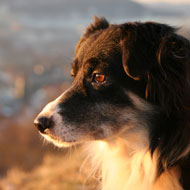Extra funding for illegal tobacco detecting dog patrols

Trained sniffer dogs and their handlers tackle the illegal trade in tobacco.
The Welsh Government has given £7,000 worth of funding to local councils across Wales for more illegal tobacco detection dog patrols.
The money will fund 22 days of work by the highly trained sniffer dogs and their handlers to tackle the illegal trade in tobacco, that is considered a threat to the health of the people of Wales.
Illegal tobacco is sold at much lower prices than standard taxed tobacco, making it attractive to people on limited budget, particularly children, and evidence suggests it is likely to be concentrated in deprived communities, where smoking levels are highest. Smoking continues to be the largest single preventable cause of ill health and death in Wales, causing around 5,450 deaths each year, and treating smoking-related diseases costs the Welsh NHS an estimated £302m per year.
The additional funding will support and enhance current work to tackle the supply of illegal tobacco by Trading Standards in Wales.
Health minister Mark Drakeford, who announced the funding, said: "Smoking continues to be the greatest single cause of avoidable mortality in Wales, accounting for nearly one in five of all deaths in people aged 35 and over, and the trade in illegal tobacco is undermining our efforts to control tobacco use and to help people give up smoking. In August I visited Newport to see first hand how a sniffer dog called Phoebe played a vital role in sniffing out half a million pounds' worth of illegal tobacco, which she found in ingeniously hidden places. These detection dogs play a key role in finding illegal tobacco."
Matthew Cridland, chair of Wales Heads of Trading Standards, said they were responsible for the enforcement of a range of tobacco control measures designed to ensure those under age were not able to purchase cigarettes and that tobacco products are genuine, properly labelled and displayed.
"We are delighted the Health minister has made this additional funding available - it will allow use to use the skills of tobacco detection dogs across Wales. This high-profile work will further raise public understanding of the harms of illegal tobacco and complement existing awareness raising campaigns undertaken in Wrexham and currently being developed for the Swansea Bay area."



 The Veterinary Medicines Directorate (VMD) is inviting applications from veterinary students to attend a one-week extramural studies (EMS) placement in July 2026.
The Veterinary Medicines Directorate (VMD) is inviting applications from veterinary students to attend a one-week extramural studies (EMS) placement in July 2026.